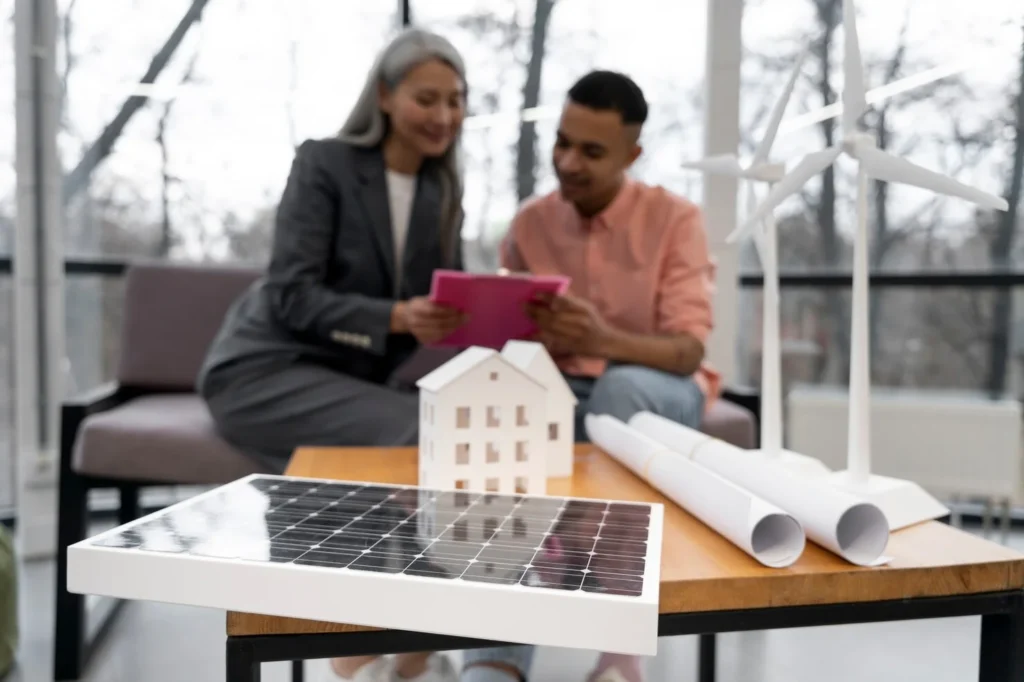Investing in home solar panel systems is gaining momentum as homeowners seek sustainable energy solutions, aiming to reduce their long-term utility costs. Solar energy offers an appealing alternative to conventional energy sources, which often come with unpredictable price fluctuations. As we face increasing energy demands and environmental concerns, the financial benefits of installing solar panels become even more compelling. We will explore how this investment contributes to environmental sustainability and leads to substantial savings on energy bills, potential tax incentives, increased property value, and a more stable financial future.
Long-Term Savings on Energy Bills
One of the most immediate financial benefits of installing solar panels through North Valley Solar Power is the potential for long-term savings on energy bills. You can significantly reduce or even eliminate your reliance on the grid by generating your electricity. Most homeowners find that their monthly energy bills decrease dramatically after switching to solar power. Depending on your location, the size of your solar system, and your energy consumption habits, you may experience savings of thousands of dollars over the lifespan of your solar panels, which can be around 25 to 30 years. Additionally, many states have favorable net metering policies, allowing homeowners to sell excess energy back to the grid, further enhancing savings. By leveraging solar energy, you can stabilize your energy costs and protect yourself from the volatility of energy prices, which fluctuate based on market conditions, geopolitical events, and supply constraints. This aspect makes solar panels an environmentally friendly option and a financially savvy investment that pays off over time.
Tax Incentives and Financial Assistance
Investing in solar energy systems can also provide homeowners with various tax incentives and financial assistance programs designed to promote the adoption of renewable energy. In many countries, government initiatives offer tax credits, rebates, and grants for homeowners who install solar panel systems. In the United States, for example, the federal solar tax credit allows homeowners to deduct a percentage of the cost of their solar system from their federal taxes. This incentive can significantly lower the overall installation cost and, in some cases, make solar energy systems more affordable than traditional energy sources. State and local governments often have programs, including additional rebates or sales tax exemptions for solar energy equipment. Furthermore, financing options such as solar loans and leases can ease the initial financial burden. These options allow homeowners to spread the cost of their solar investment over time, making the transition to solar energy more financially accessible.
Increased Property Value
Another financial benefit of investing in solar panels is the potential increase in property value. Homes equipped with solar energy systems tend to sell for more compared to those without. Numerous studies have shown that prospective buyers are often willing to pay a premium for homes that feature solar panels, primarily due to the expected energy savings. The National Renewable Energy Laboratory found that homes with solar energy systems sold for an average of 4.1% more than comparable homes without solar. This increase in property value can make a significant difference, especially in a competitive real estate market. When considering the long-term benefits of solar energy, it’s important to recognize that not only do you save money on energy costs, but you may also reap financial rewards when it comes time to sell your home. Investing in solar energy enhances your property’s marketability and economic attractiveness, which can lead to a more substantial return on investment.
Protection Against Rising Energy Costs
The unpredictability of energy prices can create financial strain for many homeowners. By investing in solar panels, you can insulate yourself from rising energy costs. As traditional energy sources such as coal and natural gas become scarcer and more expensive to extract, the likelihood of rising utility rates increases. Solar energy, on the other hand, harnesses a free and abundant resource: sunlight. Once your solar panels are installed, the cost of generating electricity from solar energy remains relatively low. This predictability allows homeowners to budget their energy expenses more effectively. In areas where energy prices are on the rise, having solar panels means that you can secure a fixed rate for your energy production, protecting yourself from fluctuations in the market. This stability offers peace of mind and can be a key financial strategy in a world where energy costs can be a significant part of the household budget.
Investing in home solar panel systems presents numerous financial benefits that extend well beyond the initial installation costs. From long-term savings on energy bills and tax incentives to increased property value and energy independence, solar energy offers a strategic path toward financial sustainability. As homeowners face rising energy costs and seek ways to secure their financial future, solar panels are a viable solution that aligns environmental responsibility with economic prudence. By embracing this renewable energy source, homeowners contribute to a cleaner planet and pave the way for a more financially stable future, making the investment in solar panels a win-win for both the environment and personal finances.







